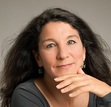Susan Rich's Blog, page 80
November 8, 2010
Festivities at the Frye: A Success (I think)
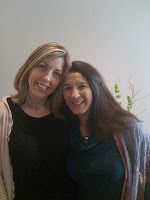
Kelli and I at the Frye
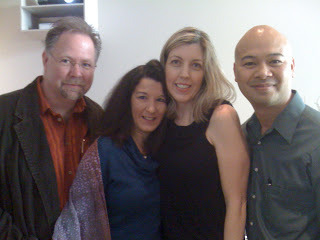
Allen Braden, me, Kelli Agodon, and Oliver de la Paz
I am happy that our event went well yesterday. Over 50 people came out to the Frye Art Museum to celebrate the collaboration of poetry and painting. Our audience seemed to enjoy the event -- many people (whom I didn't know!) came up to talk with me afterwards and thank me for putting the day together. The art pieces were set on a loop for people to look at as they came into the auditorium and each poet spoke about their connection to their piece. Best of all, thanks to a GAP grant from Artist Trust, each poet was paid for her or his commission and every audience member could enjoy refreshments and poetry swag. With gracious permission from the museum, two of the poems were produced on postcards along with their paintings. We even had gorgeous flower arrangements.
I can't say enough good things about working with the Frye Art Museum --- or with these wonderful poets. I'm tired today, but happy with how things turned out.
Published on November 08, 2010 10:40
November 5, 2010
Dutch Courtyard, The Botanists, and more at the Frye, Sunday

TABOO ON THE WORD BEAUTY: FOUR NORTHWEST POETS PERSPECTIVES ON THE VISUAL ARTS
SUNDAY, NOVEMBER 7, 2010
2 PM
Poetry and painting have long been called the "sister arts," but what exactly does the phrase mean? Join four local poets, Kelli Russell Agodon, Allen Braden, Oliver de la Paz, and Susan Rich, as they explore the connection between poetry and art. New poems, inspired by the Frye's Founding Collection, will be read by each of the poets.Free admission and free parking. This event is co-presented by Artist Trust.
The idea for this event began on an airplane from Denver to Seattle. I had already asked the Frye to consider doing a poetry event, but I knew that I needed to move beyond the "let's just get some poets together" in order to pitch a successful program to this prestigious art museum.
I was inspired by the session "Shameless Self-Promotion" by a group of Minneapolis writers at the AWP conference who were not shameless at all. Instead, they encouraged us to be creative in our author events. I wanted to create a program that needed the context of an art museum to work; I wanted something fun and celebratory of painting and poetry.
The museum program person that I worked with was superb. She let me know what was and wasn't possible. Although there was no budget for this event, she helped me brainstorm a budget so I could apply for an Artist Trust grant to cover costs like food, publicity, and one to-be-told-later surprise.
The only thing we can't control for a program like this is how many people will come. When I gave a free workshop at the Frye last winter, we registered participants and that let us know that we were over-booked! A great feeling. Since this auditorium holds over 150 people, I'm just hoping we get a respectable crowd. Otherwise, there will be a whole lot of cookies to eat. Please come!
Published on November 05, 2010 01:00
November 4, 2010
Poetry v. Prose: Lovers or Fighters?
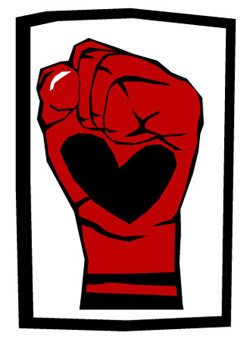
Yesterday I got a message that a travel essay I wrote is being considered for a lovely publication. I was really thrilled as my non-fiction pieces are rarely written. The truth is, I've not been nearly as interested in writing prose as I am in writing poetry. If a poem I write does not get published, I don't associate that with a failure or waste of time. Instead, I think the right publication hasn't come along yet -- that poem's own prince charming is out of town for the moment. But even that's not right. A poem that stays on my computer I can still love, has taught me something, can still be relevant to my writing life. However, an essay that stays on my computer waiting for her dance card to be filled feels entirely different.
When I write prose I've been focused on an end result. I pitched a story about the coming of the railroad to the northwest, and the story was bought and then later, anthologized. This month, I have a piece coming out about Myra Albert Wiggins and my relationship with her work. I've loved writing these pieces and I'm grateful to see them in print. So what is the difference, for me, between poetry and prose? I don't have set answers, but I do want to explore this a bit.
1. Poetry is the way I understand the world. I go to poetry, yes, I admit it, for a way to live my life. I go to poetry for sustenance. I require it as a touchstone for healthy living. It's my vitamins and my prayer book all in one.
2. I write poetry because I have to. At this point, after writing poetry for more than half my life, and publishing three books, I am addicted. I love that stanzas are Italian rooms and that the human heart has an iambic beat. I can't imagine my life without the profound struggle and ecstasy of poetry.
3. Prose is a stranger to me and a little aloof. Prose is what I was graded on at school and what I have to grade in my working life. Prose can often take too many words to say something best left half-said. Prose is so much easier to get tangled up inside of.
4. Prose is perhaps more the literary currency of our time. I say "perhaps" but I know that's just the poet in me hoping. The readership for prose, especially for the non-fiction articles I write, is easily double the audience for poetry. If I want people to read my words, shouldn't I write non-fiction a little more often?
5. Poetry and prose can be the best of friends. At the Centrum Writers Conference in Port Townsend, WA a few years ago, I heard a prose writer and a poet on a double bill. The poet was entirely prosaic in his conversational style, rambling lines, and dare I say, uninspired delivery. The prose writer, on the other hand, nearly sang her chapter -- and the sound, details, and syntax were wildly poetic. Although I knew the lesson that prose can be poetic before that evening, that experience allowed me to live it.
In this time of hybrid forms and all sorts of experimental work, I think it's pointless for me to worry this distinction at all. I realize this blog is prose and that I've become used to this as an exchange of ideas and on a good day, perhaps some inspiration. In other words, I want to try and do away with the hierarchy of language that I carry within me. The idea that poetry is more connected to the muse may well be true for me, but why not let the muse toss off her old habits and try something new. Here's to poets writing prose and prose writers trying poetry. Perhaps we need a name for that to entice people or even a national holiday. I'd even start with a postage stamp that says "Celebrate Language." Why not?
Published on November 04, 2010 10:55
November 1, 2010
Kelli Russell Agodon on Blue Positive -
[image error]
Poet Martha Silano interviews Kelli Russell Agodon today at Blue Positive.
Here is a taste:
Some of my favorite poems in the book, including "What the Universe Thinks of Lingerie" and "Universe Viewing from Home" reference astronomical terms. Did you conduct research to write these poems? If so, do you research to get inspired to write a poem, or do you research after you've begun writing and want to add in specific details about the planets, stars, etc?
Both. The "What the Universe Thinks of Lingerie" poem was inspired because I was reading an article about black holes and had a Victoria's Secret catalog on my desk and wondered what would happen if I put the two together. I had all my black hole facts first and went from there.
"Universe Viewing from Home" came about after trying to see the Hale-Bopp comet and being completely underwhelmed, as well as constantly missing scheduled meteors showers. Writing that poem, I tried to discover how poetry and space were connected and started doing research. This was how I discovered the minor planet named Neruda as well as the crater on Mercury, which at the time when I wrote the poem still wasn't official. I believe Pablo Neruda's crater was finally approved in 2008.
To read the entire interview go to Blue Positive.
Here is a taste:
Some of my favorite poems in the book, including "What the Universe Thinks of Lingerie" and "Universe Viewing from Home" reference astronomical terms. Did you conduct research to write these poems? If so, do you research to get inspired to write a poem, or do you research after you've begun writing and want to add in specific details about the planets, stars, etc?
Both. The "What the Universe Thinks of Lingerie" poem was inspired because I was reading an article about black holes and had a Victoria's Secret catalog on my desk and wondered what would happen if I put the two together. I had all my black hole facts first and went from there.
"Universe Viewing from Home" came about after trying to see the Hale-Bopp comet and being completely underwhelmed, as well as constantly missing scheduled meteors showers. Writing that poem, I tried to discover how poetry and space were connected and started doing research. This was how I discovered the minor planet named Neruda as well as the crater on Mercury, which at the time when I wrote the poem still wasn't official. I believe Pablo Neruda's crater was finally approved in 2008.
To read the entire interview go to Blue Positive.
Published on November 01, 2010 12:23
October 29, 2010
Robert Hass in Seattle Thanks to SAL
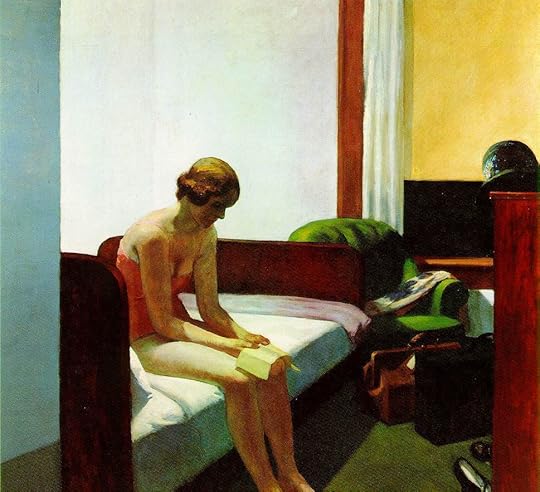
I didn't even know. How could I have missed that Robert Hass is extraordinary?
Last night in Seattle, thanks to Seattle Arts and Lectures, Robert Hass awed and moved us with his poems, his translations of Milosz, his unpublished notebooks grappling with the death of his brother, and his generous wit. But what struck me most of all was his embodiment of poetry; in other words, his way of being a poet in the world. I don't want to overly romanticize this, but it seems important to mention.There were entire bolts of poetry (not just a bit of fabric) -- from the Japanese, from the transliterated Polish, from his work that he could access easily and recite to us. This was measured with comments about the world of parenthood -- at one point he said something to the effect that as a parent, if you don't find a way to love the everydayness of life, you're sunk. In other words, he seemed comfortable in ancient Japanese texts, Walt Whitman's dictionaries, and checking out fellow passengers on an airplane. The audience seemed as enamored with him as I was; it was an evening that reminded me why poetry matters in the world. I left Benaroya Hall feeling connected and compassionate towards people, dogs, and all the worlds beyond my world. I realized in my very minuscule way, I get to participate in this profound tradition. How better to live this one life?
Here is one of the translations Hass read of Milosz's final poems, translated by his good friend and neighbor for many years, Robert Hass.
From the 0! series
4.
Edward Hopper (1882-1967)A Hotel Room (image above)Thyssen-Bornemisza Collection, Lugano
O what sadness unaware that it's sadness!What despair that doesn't know its despair!
A business woman, her unpacked suitcase on the floor, sits on a bed half undressed, in red underwear, her hair impeccable, she has a piece of paper in her hand, probably with numbers.
Who are you? Nobody will ask. She doesn't know either.
This is a wonderful poem, but in Hass's voice it elevated to a truly great poem. Again and again, I had the experience of hearing the poems delivered in his lilting voice that I had previously read on the page. Although I had never met Robert Hass before, nor do I know much about him, I went away last night believing that he was able to infuse the poems with so much empathy, with so much (can I say it) love, that the poems reached heights that just aren't possible on the page. Sure, I've had this sense that a poet was a strong reader before, but this was different.
One of my favorite lines of the night was:
"There should be a phrase for something like passenger tenderness."
To read Robert Hass's translation note as well as the whole O! series, check out this blog that I've just discovered with an intriguing name: instant librarian.
http://instantlibrarian.wordpress.com...
Published on October 29, 2010 11:31
October 28, 2010
Thankful Thursday - Rainy Edition
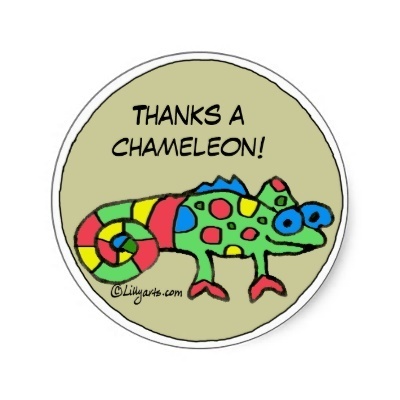 This week I'm thankful for:
This week I'm thankful for:Writing time
Comical cats
Shelter by the sea
Muriel Rukeyser
Impromptu home-cooked dinners
Medicine
Friends: you know who you are ~
Published on October 28, 2010 12:37
October 27, 2010
Poet Extraordinaire January O'Neil Interviews Me Today
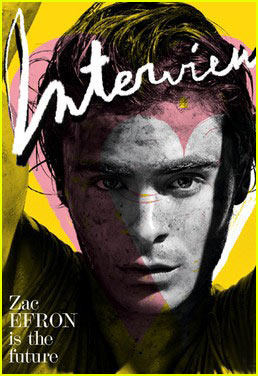
Thanks to January O'Neil for her interview with me on PoetMom today! January and I will be reading together in Cambridge, Mass and Miami, Florida in just a few weeks. It's my first out of the northwest tour and I am so happy to have January as my poet and travel companion.
Here is an excerpt from the interview which you can read in full right here:
Q. The Alchemist's Kitchen is such an intriguing title. How did you know that was the right title for this collection?
A. For Cures Include Travel I sent out a list of six titles to a group of my friends to see which one they liked best. Not surprisingly, they all very strong preferences but the trouble was, no one agreed. I went back and forth on several titles. Happily, The Alchemist's Kitchen, was my one and only title for this book. I think that it serves as a vessel for the disparate themes I've braided throughout the book: solitude/imagination/relationship. As poets, we take the everyday flotsam and jetsam of our lives and try to elevate it to something universal, a reality that others can enter. Alchemy comes from the ancient Arabic word al-kimia which was both a philosophy and a practice of changing base metals into gold, but the ultimate goal was to achieve wisdom. In fact, the discoveries of the alchemists are the prototypes for modern chemistry. Later, after the book was published, I found that the alchemists were also seeking the secret of everlasting life and that Carl Jung had reexamined alchemy to recast its meaning to be a spiritual path into the self. The more I learn of alchemy, of creating what we desire out of what we have, the more I appreciate the title.
Thanks, January!
Published on October 27, 2010 08:59
October 26, 2010
Two Opportunities for Washington State Writers
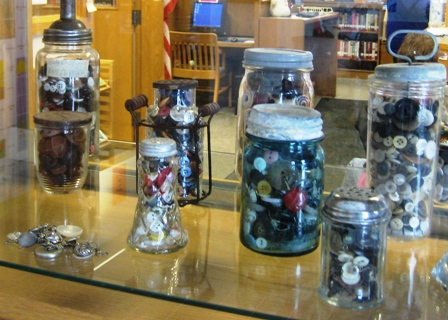
Here are two cool opportunities for poets, fiction writers, non-fiction writers and writers of hybrid forms. In the interest of full disclosure, I am involved as a presenter and curator for these organizations, respectively. As a former Jack Straw Writer and as someone who teaches and helped form the poetry portion of the Edge Program, I can attest to the high quality of both of these groups. In fact, I marvel at how helpful these organizations can be to writers at all points in their careers. Why not see if these programs are for you or for someone you know?
Artist Trust Edge Program for Writers
What is it?
the EDGE Professional Development Program is a comprehensive survey of professional arts practices offered through a hands-on, interactive curriculum that includes instruction by professionals in the field, specialized presentations, panel discussions and assignments. The EDGE Program provides artists with the relevant and necessary entrepreneurial skills to achieve their personal career goals and the opportunity to build community through peer support and exchange.
Click here for download-able, fill-in-able application. After completing it, print it and either hand deliver or mail it with your supporting materials.
Postmark deadline: Monday, December 6, 2010
Jack Straw Writers Program
What is it?
The purpose of the Jack Straw Writers Program is to introduce local writers to the medium of recorded audio; to encourage the creation of new literary work; and to provide new venues for the writer and their work. The program was created in 1997, and each year a single curator selects 12 writers/writing teams out of dozens of applicants based on artistic excellence, diversity of literary genres, and a cohesive grouping of writers. Twelve writers/writing teams are selected by a curator each to participate. The program features voice and presentation training, in-studio interviews, public readings, a published anthology, and internet podcasts. All live readings are recorded, and selected portions are produced for podcasts and radio broadcast.
Click here for a downloadable application.
Deadline November 1, 2010 (Hurry!)
Published on October 26, 2010 19:58
October 25, 2010
What I Learned Late Night at the Twitter Party or: How I Am Learning to Love Technology, Slowly

Although I blog often, I rarely tweet. And a year ago, I was a staunch techno-phobe. So what changed?
Perhaps I am a realist and it's been clear for a decade or so that on-line communication is here to stay. No one ever said I was a trend setter.
So I was surprised and pleased and a little scared when poet Deb Ager of 32 Poems contacted me to be part of the twitter party along with Kelli Agodon, Amiee Nez, Colin Kelly, D. A. Powell, and January O'Neil.
Kelli blogged this morning on what she learned and you can read her comments here. I agree with her insights and thought I would add some of my own.
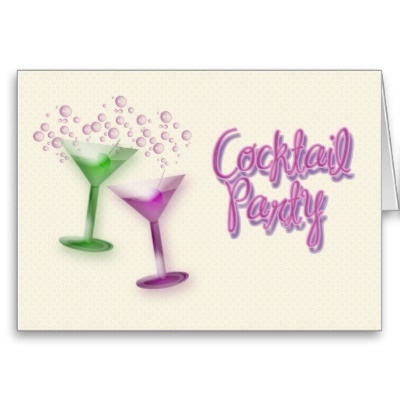
I am not a party girl, but I do love a long and rambling conversation. Usually, if I make it out to a "gathering" then you can find me in the kitchen washing paper plates. Therefore, the words twitter + party together were rather intimidating ---but since I was invited and am in to having new experiences, I said yes. I'm so glad I did. It's as if I've become a pioneer, exploring the open west.
1. How is a twitter party like a face to face party?
I met new people. Over virtual cocktails I chatted with a woman interested in putting her manuscript together. I suggested she look at Ordering the Storm - an anthology of essays about putting a book together. She seemed interested. Other folks kept dropping by and added to the conversation. I learned that Colin Kelly and I like many of the same movies. I learned January O'Neil and I share a love of Elizabeth Bishop. All of this made me happy.
2. In what ways is a twitter party perhaps better than a Halloween Party?
No need to dress up! No worries that you will be judged by the way you look or because you've got a sore throat and sound like a camel jockey. It's what you say that's important - and perhaps how fast you type and if you remember to put the "hash tag" at the end of the tweet.
3. How was it structured?
Deborah Ager contacted each of us and asked if we'd be interested in an on-line experiment. She prepared questions for us that she released into the party at different times -- sort of the equivalent of changing albums on a stereo. Anyone else at the party could also ask a question such as, "Do you write first in notebooks or directly on the computer" or "Have you any advice for putting a manuscript together"? Here is a transcript of the entire hour right here.
4. What might make this new experience one that will remain in the culture?
I love how democratic the party was. Anyone was welcome to join us who heard about it via one of our blogs or even at The Rumpus where a small article went up Sunday. There was a sense that anything could happen as the conversations started to fly. Best of all was D. A. Powell's project that allowed for a creative performance aspect to our event. As Kelli Agodon states in her post, perhaps using twitter parties as a way to do collaborative writing is what I found most exciting. It reminds me of the automatic writing exercises of the surrealists --- only with more possibilities.
[image error]
Stay tuned for more parties ...
Published on October 25, 2010 14:19
October 24, 2010
Twitter Party - Tonight @ 9 PM EST or 6 PM Pacific
I've never done this before. Who knew there was such a thing as a twitter party? Not me? I'm happy to be invited though. Please feel free to join us at
#poetparty
If you search that on Twitter the conversation with about 5 poets from across the country will show up.
I promise to give you a report if you're curious how it goes. Free drinks and great food for all.

#poetparty
If you search that on Twitter the conversation with about 5 poets from across the country will show up.
I promise to give you a report if you're curious how it goes. Free drinks and great food for all.
Published on October 24, 2010 17:46

